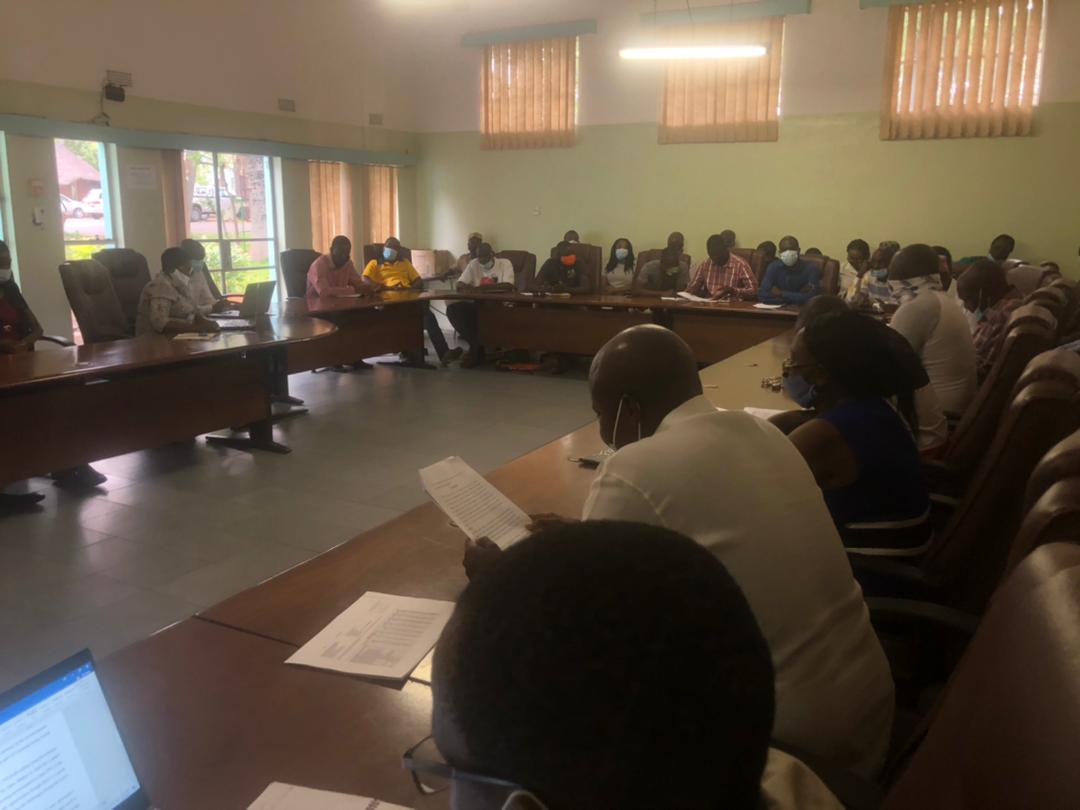BY NOKUTHABA DLAMINI
Victoria Falls residents have asked the city council to cut down on luxuries and prioritise service delivery in its 2022 budget.
Council says it expects to spend $1.9 billion next year and tariffs would be raised by 68 percent from April 2022.
Residents, who attended a budget consultative meeting on Tuesday, said instead of allocating huge amounts of money on office furniture and other luxuries, the local authority should consider funding social services such as health delivery.
They said the city fathers must also consider that the majority of Victoria Falls residents lost their jobs after the outbreak of the Covid-19 pandemic slowed down global travel.
“When we look at your capital expenditure, it doesn’t seem to prioritise service delivery yet when we talk about the development of the town, that’s what we should be talking about” said Yvonne Jandles, who was representing representing the Hotels Association of Zimbabwe.
“For example, if you look at the first three sections which deals with the mayor, the town clerk and the chamber secretary, the question is, how many times are we going to keep buying them furniture.
“Here you list that you need to buy television sets, fridges, coffee makers and projectors and more things.
“Given the place where we find ourselves as a city, we desperately need a well thought out budget
“I think we can do away with (luxuries) for now and if we take away all these things, we can reduce the budget by at least $48 million.”
Jandles added: “Your figures there, like (the allocation) for the town clerk’s office rose from $6 million to $28 million for 2022 yet we have Chinotimba Clinic with only $21 million and a zero budget for Mkhosana Clinic.
“We are not castigating you, but we are saying you should be realistic and cut down on the things that are not important.”
Council’s finance director Neville Ndlovu, however, defended the budget saying the furniture and other equipment they wanted to replace was in a poor state.
“This is what brings efficiency in terms of proper work,” Ndlovu told the residents.
“For instance, I am struggling with the printer which takes two to three days to printout.
“So, if I can get a good printer, I will be able to deliver.
“Service delivery is also about equipping those that are delivering the service so that they are able to be where you want them to be at the appropriate time.”
Ndlovu said some of the capital projects would be financed through devolution funds from central government and borrowings from the open market.
Victoria Falls Combined Residents Association chairperson Kelvin Moyo asked the local authority to roll over the 2021 supplementary of $1 billion to June next year as it was only approved this month.
After consultations between councillors and town clerk Ronnie Dube, it was agreed that the local authority will only review tariffs in May 2021 after the implementation of the supplementary budget.
Ndlovu said the proposed tariffs review will be spread quarterly to factor in inflation trends.
“Our proposed tariffs from January to March will continue with what was approved on the supplementary budget, then a review of 68 percent will be implemented on the 1st of April then 12 percent on the 1st of July, and another 12 percent on the 1st of October,” he said.
Other community organisations such as the Victoria Falls United Residents Association and Hwange Residents Association also appealed for council to be transparent in the management of resources to cultivate trust.
They also pleaded with council to consider funding sporting activities in the town to promote sport tourism.
Two representatives for residents living with disabilities said council’s proposed budget did not cater for their needs.
“The president (Emmerson Mnangagwa) has proposed a policy that takes into consideration the disabled and I am disappointed that here, where the change to consider the disabled should begin, there is no such,” one of the representatives said.
“Your budget is silent on us, the youths and even women yet we are the neediest.
As a way of generating funds, other residents suggested that council should consider land sales, pricing of beer halls and updating its systems to bill some hotels and lodges that are not paying anything

 Slider3 years ago
Slider3 years ago
 National4 years ago
National4 years ago
 Tourism and Environment4 years ago
Tourism and Environment4 years ago
 Special reports4 years ago
Special reports4 years ago
 Opinion4 years ago
Opinion4 years ago
 National4 years ago
National4 years ago
 National3 years ago
National3 years ago
 National3 years ago
National3 years ago



